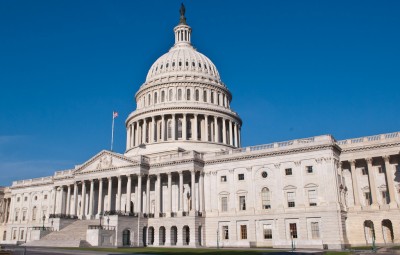For the short term, most schools will likely be unaffected by the federal government shutdown that went into effect today. But if the impasse in Congress lasts a long time, schools may feel the financial squeeze.
The shutdown is a result of the House and Senate’s failure to agree on a funding bill, which forced more than 800,000 federal employees into furlough Tuesday morning.
If it lasts beyond one week, the government interruption is expected to delay funding to school districts, colleges and universities that rely on federal funds, according to a U.S. Department of Education contingency plan. With more than 90 percent of its employees expected to be furloughed, officials at the Department of Education will be unavailable to assist school districts or answer questions as they attempt to implement reforms, The Washington Post reports.
The biggest immediate impact could be felt in Head Start programs, though, which are still reeling from federal sequestration cuts that pushed 57,000 children out of the preschool program for low-income children. According to the National Head Start Association (NHSA), an advocacy group, 23 programs in 11 states with grant cycles that begin Oct. 1 are poised to lose grant money due to the shutdown.
“Beyond the headline numbers, this shutdown has real consequences,” said NHSA Director Yasmina Vinci in a statement. “Government shutdown is one cut atop an already deep wound.”
In Prentiss, Miss., a town of about 1,100 people an hour south of Jackson, the Five County Child Development Program closed its Head Start classes on Tuesday after failing to receive funding. “The only funds we have coming in are the federal dollars,” said Jonathan Bines, director of the Head Start program, which serves about 900 children.
Bines says he has received phone calls from parents who are struggling to deal with the closure. In Jefferson Davis County, where Prentiss is located, the median household income is about $26,000, and about one out of every four residents lives in poverty.
“They don’t have any childcare,” said Bines. “Some of them are working. They’re trying to scramble to find a place to leave their children.”
While institutions of higher education are expected to largely escape the effects of the shutdown for now, it is still unclear exactly how colleges and universities or postsecondary students would be affected if it continues, according to Inside Higher Ed. Prior to a near-shutdown in 2011, several agencies said they would be unable to award new research grants or help with existing grants. While the administration of student financial aid programs will most likely not be affected, a prolonged shutdown could delay federal funding to colleges and universities.
Schools run by the federal Bureau of Indian Education will most likely not be affected, according to the National Indian Education Association (NIEA). The BIE currently oversees 183 elementary and secondary schools and two post-secondary institutions across 23 states. According to the agency’s contingency plan, the Department of Education has already provided funds to sustain operations for the remainder of the 2013-14 school year.
But if the shutdown continues, it is unknown if tribal colleges would remain open. In anticipation of the 2011 near-shutdown, the Associated Press reported that the two Bureau of Indian Affairs colleges would have been forced to shut down after seven days. A request for comment from BIE officials was not returned as of press time Tuesday.
On Monday, Ben Shelly, president of the Navajo Nation, said in a statement that tribal colleges, which are not forward funded, will only be able to operate as long as funds remain available. In general, the Navajo Nation depends on federal funding for two-thirds of its budget, according to New Mexico’s The Daily Times.
“It is unconscionable that the federal government will come to a complete halt due to a few unreasonable members of Congress,” Shelly said. “By failing to provide funding, Congress is once again failing to honor its trust responsibility to America’s first people.”




